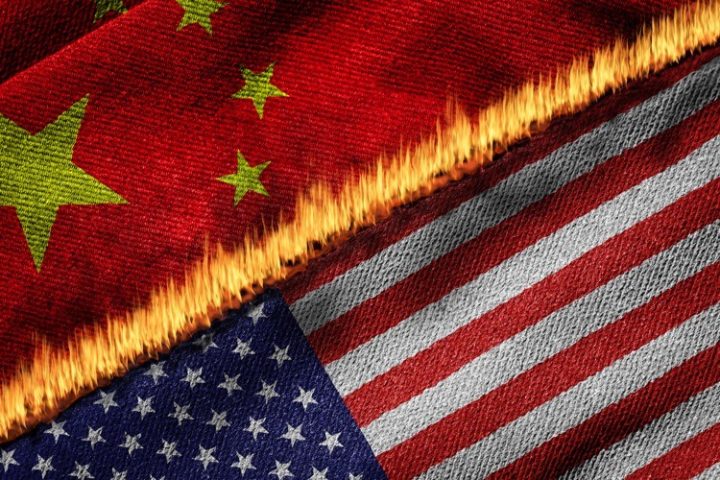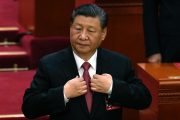
The government of Communist China strongly criticized the United States on December 8 for imposing new U.S. sanctions against Chinese officials for their actions in Hong Kong. Chinese officials also objected to the sale of more U.S. military equipment to Taiwan.
China’s Vice Foreign Minister Zheng Zeguang summoned Robert Forden, the deputy chief of mission at the U.S. Embassy in China, to lodge what Chinese sources called “solemn protest and strong condemnation” over the U.S. sanctions against 14 vice chairpersons of China’s National People’s Congress Standing Committee.
“The move by the U.S. side has severely violated the basic norms governing international relations, interfered in China’s internal affairs, and harmed China-U.S. relations,” Zheng complained.
“China expresses strong indignation and condemnation against [the U.S. sanctions],” Zheng continued. “It is totally within China’s sovereignty to improve governance on Hong Kong, crack down on criminals, and curb foreign interference in Hong Kong affairs.”
Zheng’s statements were made just after Chinese Foreign Ministry Spokesperson Hua Chunying’s regular press conference the previous day. During that press event, Hua cited a Reuters report quoting sources saying that the United States is prepared to impose sanctions on at least 12 Chinese officials because they are involved in the disqualification of the Legislative Council members of Hong Kong.
Noting that the sanctions had not yet been officially announced, Hua said that if the report is true, the China’s position “is clear and consistent.”
Hua said, “China firmly opposes and strongly condemns the U.S. side for interfering in China’s internal affairs through the Hong Kong issue and imposing so-called sanctions on Chinese officials. We have repeatedly stated our solemn position to the U.S. side in this regard and we have made legitimate and necessary responses.”
Hong Kong was a British colony from 1842 until 1997, when Britain transferred it back to China. It maintains separate governing and economic systems from that of mainland China under what has been called “one country, two systems.”
The U.S.-Hong Kong Policy Act of 1992 stated that even after the 1997 transfer of sovereignty from the U.K. to China, the United States would continue to have dealings with Hong Kong apart from the People’s Republic of China. The United States has maintained substantial economic and political interests in Hong Kong.
Hua insisted emphatically:
Hong Kong is China’s Hong Kong. Hong Kong’s affairs are purely internal affairs of China. No foreign country has the right to interfere in it. China urges the US side to immediately stop meddling in Hong Kong affairs, stop interfering in China’s internal affairs, and stop going further down on the wrong path. If the US side insists on going its own way, the Chinese side will continue to take resolute countermeasures to safeguard its sovereignty, security and development as well as the legitimate rights and interests of Chinese personnel.
In addition to her statement regarding Hong Kong, Hua also demanded that the United States cancel its latest arms sale to Taiwan and threatened that China would make a “proper and necessary response.”
The Taiwan News reported on December 8 that the U.S. State Department had approved the possible sale of a Field Information Communications System (FICS) and related equipment to Taiwan for an estimated cost of $280 million.
Taiwan’s government welcomed the sale of U.S. military equipment, saying it showed Washington is honoring its commitment to bolster the island’s defenses.
“Taiwan has been at the receiving end of such military threats on a daily basis,” Taiwan’s President Tsai Ing-wen told reporters, regarding the anticipated sale. “Only through engagement [with the United States] and by working together can we tackle the threats and challenges that beset our region and the world.”
In response to the recent U.S. sale of military equipment to Taiwan, China has increased the number of military flights near the island and has pledged to punish U.S. companies involved in the arms deals.
Related articles:
Trump Reportedly Planning to Go All-out Against China in Last Days of Term
Taiwan Buying U.S. Missiles, Making Plans to Repel Chinese Invasion



